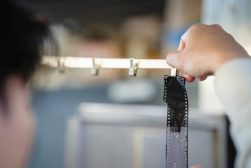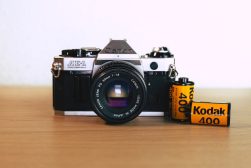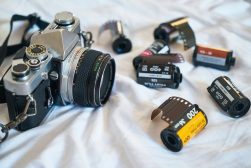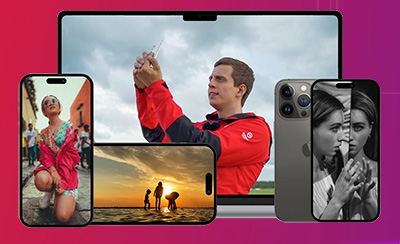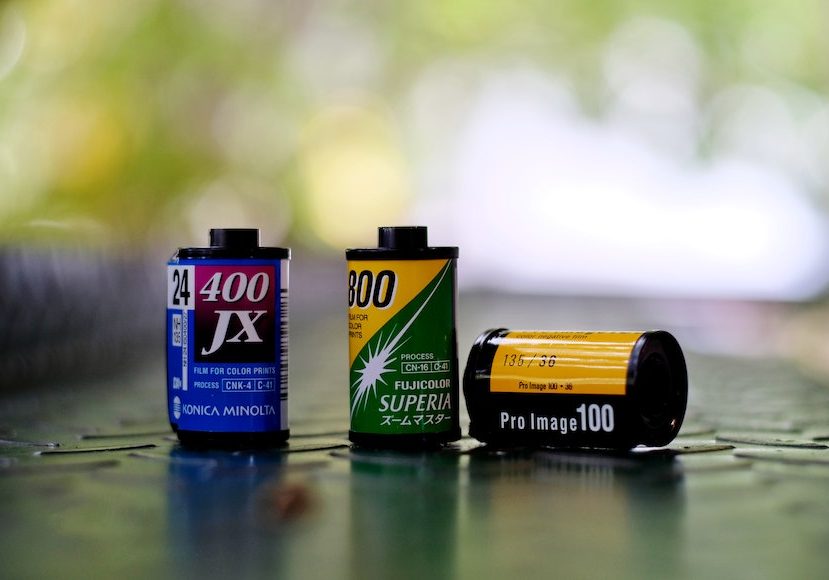
Developing Film & Cameras at CVS in 2024: Should You Do It?
Discover about the services offered by CVS for developing your cherished film rolls and disposable cameras and whether it's is the right option for you.
Film Photography | Learn | By Ana Mireles
Shotkit may earn a commission on affiliate links. Learn more.
This guide to developing your film and disposable cameras at CVS will help you understand if this is the right choice for you.
While film photography isn’t mainstream anymore, many people still need film-developing services.
If you’re one of them, whether you shot the pictures or found an old roll at your grandma’s house – CVS is one of the places you can go to.
However, it’s not the only one. In this article, I’ll talk about the pros and cons, the prices, and the conditions of their services. I’ll also give you some alternatives to CVS.
By the end, you’ll have all the information to make an informed decision and decide whether or not you should develop film and disposable cameras at CVS.
The CVS disposable camera developing service allows customers to obtain high-quality prints or CDs of their photographs.
This practical solution has made CVS a go-to destination for anyone who prefers the convenience of developing disposable cameras quickly and efficiently.
Pros and Cons of Developing Film at CVS

Credit: Miosotis jade, CC BY-SA 4.0 via Wikimedia Commons
Like any photo center, CVS photo developing service has advantages and disadvantages.
Here’s a list of the biggest pros and cons to help you decide if developing at CVS is for you.
Pros
Multiple locations throughout the US. CVS Pharmacies have over 9,600 locations, making a drop-off very convenient. Of course, each site is different from the other. So if you are not sure where to develop disposable cameras, chances are a CVS is near you.
So, please double-check that the film developing service is available in the closest one to you.
Drop-off service. It’s very convenient that you can simply drop off your film rolls or disposable cameras. While it’s not a one-stop shop like Walmart, it’s still a multi-purpose trip.
It’s easier than you would use the trip to the pharmacy to get your film developed than to go especially to a photo lab. Unless you’re a professional photographer, in that case, you probably go to a photo lab anyway.
24/7. Many CVS pharmacies are open 24 hours, Monday to Sunday. This way, you can make the drop-off and pick-up at any time.
Multiple film formats. CVS develops 35mm film negatives to digital photos (color and black and white), slide film, APS, 110, and disposable cameras. All of them have the same price. You can also buy disposable cameras there.
Reliable third-party lab. CVS doesn’t develop the film in-house. They send out the material to a processing lab in Greenwood. The lab is run by the well-known film company Fujifilm.
Cons
They don’t return the negatives. This is one of the biggest cons because you won’t receive your original photos back. They only give you small prints and low-resolution scans.
So, without the negatives, you’ll never be able to have enlargements or high-quality files and prints.
Online/Mail-in ordering is not available. It’s not possible to shop online for developing services and mail your film rolls or disposable camera to them. You need to go to one of their locations to drop off the material and make the order in person.
The scans are low-res. Sending your film to get developed at CVS, you get prints and digital pictures included in the prices. However, the scanned images are low resolution. So, you can’t use them to have a bigger print in the future should you want one.
How Much Do You REALLY Know About Photography?! 🤔
Test your photography knowledge with this quick quiz!
See how much you really know about photography...
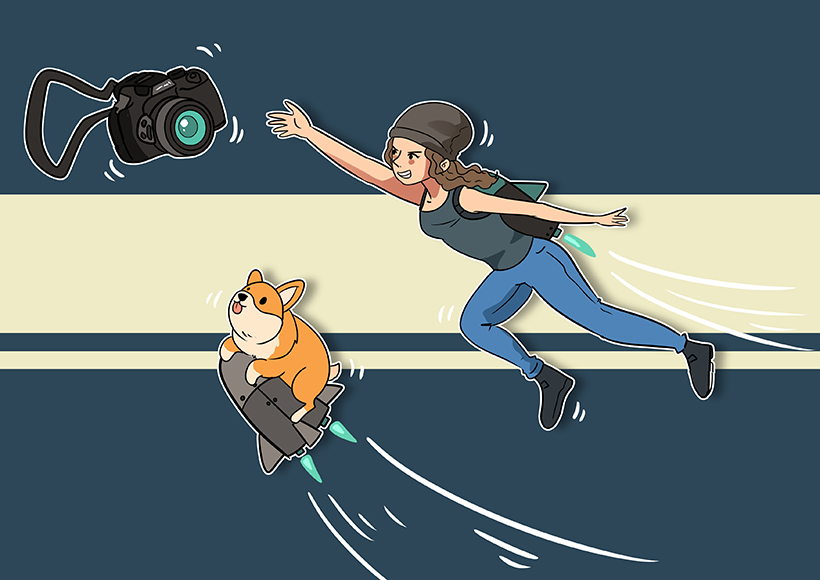
Long turnaround times – CVS doesn’t develop film in-house; they send it away for processing. Then, the shipping times add to the processing time. As a result, the turnaround times are pretty long. You’ll get your photos in about three weeks.
How Much Does it Cost to Develop Film at CVS?
CVS charges the same prices regardless of the type of film you send. The cost is based on the number of frames from the roll and whether you want single prints or doubles. They all include a CD with the digital file of the photos in low resolution.
12 exp -$10.99 singles / $12.99 doubles
24 exp -$14.42 singles / $17.85 doubles
27 exp -$14.99 singles / $18.99 doubles
36 exp -$16.99 singles / $21.99 doubles
How to Get Your Film Developed at CVS?
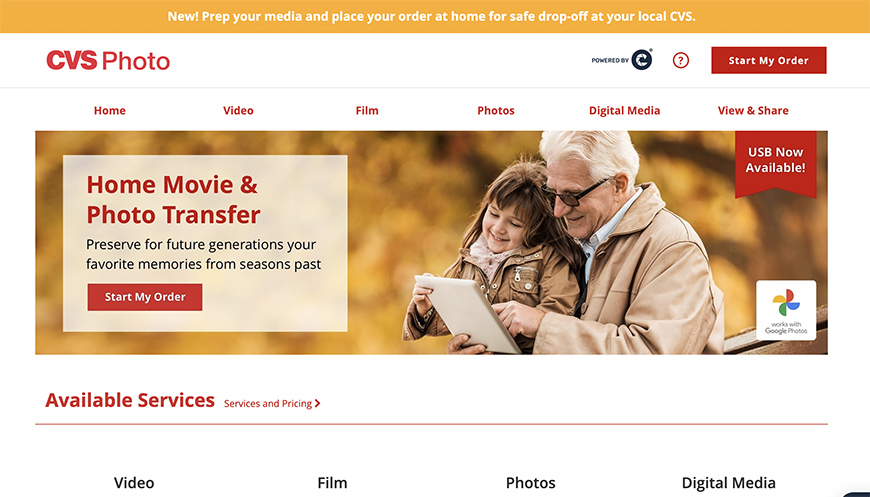
Drop off your film or disposable cameras in the CVS photo submission box at any CVS store with a photo center. Note that not all CVS locations have this service. To make sure, you can use the store locator on their website.
The 35mm color film processing time is 7 to 10 business days. Other formats may take up to three weeks.
When your order is ready, you’ll receive 4″ prints and a digital version of your photos on a CD. Note that you won’t get the negatives back with your order. The lab disposes of the negatives after they process them.
What About My Film Negatives?
Unfortunately, CVS doesn’t return the negatives – they get thrown away after scanning.
This is like losing your original file in digital photography and being left with the small, low-res version of your photo that you uploaded to Facebook.
Not only do you lose the possibility of getting a bigger print or a higher resolution scan, but you’ll also lose your photo if the digital file gets corrupted.
Where Else Can I Develop My Film and Disposable Cameras?
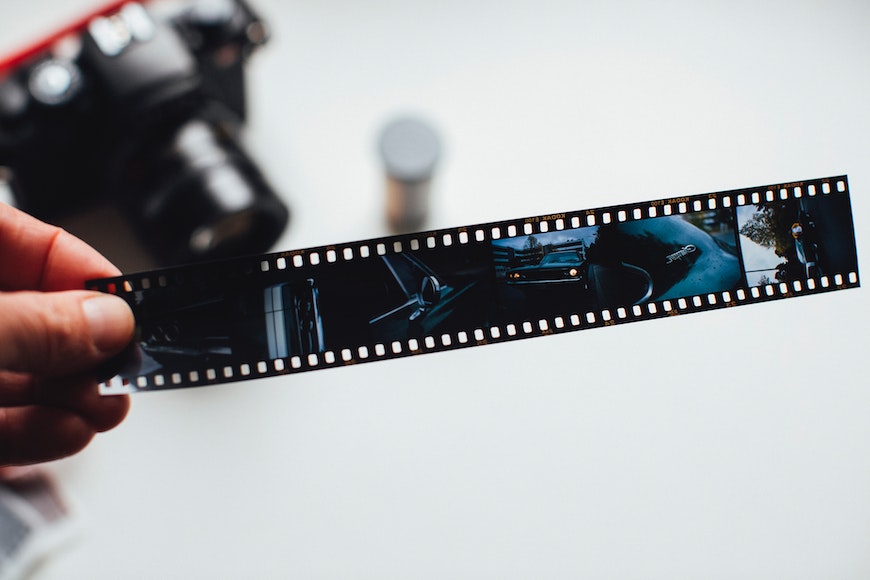
Credit: Markus Spiske
If there aren’t any CVS Pharmacies near you or you don’t want to get your film developed there, here are some other possibilities.
Chain Stores
Unfortunately, film photography isn’t as popular as it once was. As a result, most chain stores that offer this service don’t do it anymore.
However, CVS is not the only one that’s kept going. You can also get your film developed at a Walmart Photo Center.
Note that not all Walmart locations have one. You can use the Store Finder on the website to find out if there’s one close to you.
To find out if Walmart is more convenient than CVS, you can check out our article on Walmart’s developing services for more information. You can also get 35mm film developed at Walgreens.
Photo Labs
There are plenty of photo labs throughout the US where you can get your film and single-use cameras developed. If you know a guy who develops film, chances are they either work for a Photo lab or have worked for one in the past.
Most of them are also mail-in labs. So, you can send your material even if there isn’t one close to you.
This might be more expensive than using a chain store lab. However, the quality is much better. You’ll be able to get high-resolution scans and bigger prints.
Most importantly, you’ll get your negatives back. If you’re using a mail-in service, this may result in a higher price due to the shipping service if you weren’t asking for any prints that needed to be sent anyway.
However, some labs give you the option to opt out if you don’t want the negatives. Others allow you to see the scans first to decide which images you want to print. This way, you’ll only pay for one shipping.
We’ve compiled a directory with some of the best US photo labs with their primary services and prices. You can check it out and decide if one of them is right for you.
We’ve also put together a guide to the cheapest places to develop rolls of film.
Develop your film at home
Last but not least, you can develop your film at home. Mainly if you shoot black and white film, this isn’t hard to do, and you don’t need to spend much on equipment or chemicals.
This is an excellent option if you regularly practice analog photography. However, this may not be the best choice if you only want to develop an old roll you found in the back of the closet.
If you have the skill set and the search for “film developing near me” was a dud, try your hands on developing at home.
If you decide to try it, I recommend you check our beginner’s guide to developing film at home.
FAQs on CVS Film Developing
Does CVS develop film strips?
Yes, they develop 35mm film, slide film, APS, and disposable cameras. They don’t have a lab in the stores. Instead, they send the material for processing to a lab in Greenwood run by Fujifilm.
Does CVS keep film negatives?
No, CVS sends your film to be developed in a third-party lab. They develop, print and scan your photos and throw away the negatives at the end. So, you won’t get your negatives back, but they won’t keep them either.
Does CVS develop disposable cameras?
If you’ve been wondering where to get disposable cameras developed, try CVS. Yes, CVS sells and develops single-use cameras. The process and prices to get them developed are the same as any other film roll.
What happens if I never pick up photos from CVS?
The policy may be different in each location. However, most of the time, you’ll receive a call from them to confirm whether or not you want the photos. If they can’t reach you or you confirm that you don’t want them, they’ll throw them away.
How long does it take CVS to develop film?
The turnaround time is three weeks. This is because they don’t do the processing in-house, but they have to send it out to a lab.
Is CVS good for developing film?
CVS is very convenient due to its multiple locations and opening times. They also develop formats that other retail stores won’t. In that sense, it’s good.
However, CVS is not the best choice if you’re looking for professional results or high-quality prints and scans. Most importantly, CVS is not the place to go if you want to hold on to your negatives.
Can I have film and photos transferred to digital at CVS?
Yes, you can transfer photos and movies to digital format at CVS. They accept slides, negatives, and prints and can transfer them to USB, DVD, or Google Photos. You can prepare your order online and drop off the material at the CVS photo counter.

Check out these 8 essential tools to help you succeed as a professional photographer.
Includes limited-time discounts.





